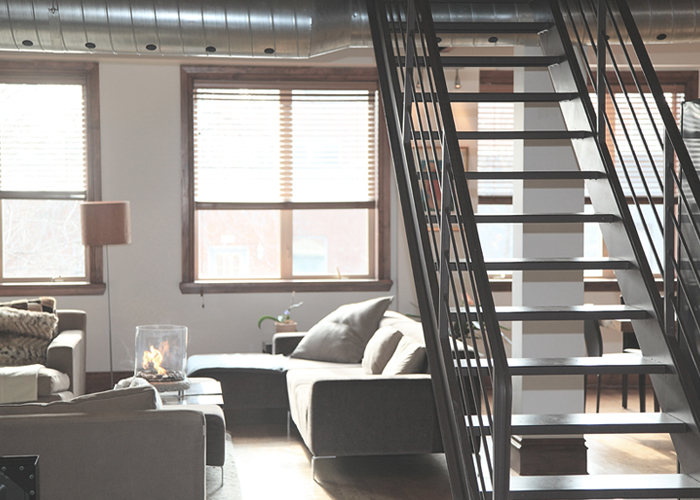6 Easy-To-Follow Steps To Help You Save On Utilities
Besides rent, utilities are probably the second-highest payment you make every month. While groceries, going out and buying new clothes all add up, you at least can cut yourself off at a certain point by buying cheaper grocery items or going without new clothes for a while. Utilities are a hard expense to curb, however, because you can’t just go without electricity for the month. You need working lights and at least some air circulation, if it’s available to you. You can say “I’m not going to online shop anymore” and be done with it. You can cancel cable because you’ve bummed your family’s Hulu/Netflix/HBOGo accounts and no longer need all those channels. But utilities are an expense you’re stuck with, and therefore an even more important bill to cut down on.
I got to the point where my utilities bill was questionably high and it was no longer something I could avoid, or put off taking care of. Instead, I learned how to deal with the situation in the most straightforward way possible. I live in D.C., so I have to cope with the high cost of heating in the winter, as well as the very necessary air conditioning costs in the summer months.
Here are 6 simple things you can do to bring down that monthly monstrosity:
1. Control your climate
This is the most obvious and the best way to lower your bill. Resist the urge to make your home “just right”. Get to your perfect point, then dial it back at least two degrees. If your ideal temperature is 72, make it 74 or higher in the summer. (Or better yet, turn it off completely and invest in a good fan.)
Don’t warm your home to more than 68 in the winter. Just two degrees can make a huge difference in your bill. Remember, you don’t have to have your place at the same temperature all the time. I bring the temperature down another 2-3 degrees at night for comfort, then adjust it back to something warmer and more manageable during the day. Also, if no one is going to be home all day, tone down the control. If you’re going to forget, leave a note right by the door. You can always adjust when you get home. If you need help sticking to a temperature plan, many systems let you set automatic settings at different times of the day.
2. If it’s not plugged in, unplug it
This is probably the easiest thing to adjust if you make a point of doing it. But getting into the habit takes some getting used to. You know how you leave your cellphone/computer/tablet chargers plugged in at all times? Do you have one next to your bed and one in the living room? Unplug them. If they’re not charging anything, all they are doing is draining energy from your home. My recommendation is to get a power strip so you can unplug them all at once. If your device is charged, unplug it. Leaving on the charger when it doesn’t need to charge will shorten the battery life in addition to making your wallet lighter.
3. Turn down for savings
We all know to turn off lights when you leave the house, but turning off lights when you leave a room is also a great habit to get into. Turn on a lamp instead of using the overhead lights when you’re watching T.V. because it uses less electricity. When you’re not using lamps, unplug them so they don’t drain energy. There are lots of savings in lessening the light and there’s really no need for the kitchen and bathroom lights to be on once you’re in bed for the night.
4. Unplug the kitchen
This is potentially a big one, but it’s always the farthest from my mind. There are little things, like appliances, that if you unplug them while they’re not in use, will save you money. This applies to toasters, coffee makers, blenders etc. However, this also applies to larger appliances like the oven and microwave. It can be impractical to pull them out and unplug them, but if you really need the savings, it can be a game-changer.
5. Either wash your dishes by hand or commit fully to the dishwasher method
Obviously using a dish washer (if you’re lucky enough to have one) uses quite a bit of water and electricity. Decide to stop using your dishwasher entirely for a month and you can cut back on both those utilities. On the flip side, if you’re completely attached to your dishwasher (which is understandable), stop pre-rinsing your dishes. The fact is that most dishwashers built recently are made so that you don’t have to pre-rinse, and you’re just wasting water if you are doing both steps.
6. Air dry most of your clothes
If you have a washer/dryer in your apartment, you’re paying more every month with each wash. Unplugging them (as the points above suggest) will help, but cutting down on usage is also a good idea. We typically only think to air dry our delicates and sweaters that shrink, but instead you can try skipping the dryer altogether, and hanging your towels and clothes. Even if you have to buy a cheap drying rack, you’ll still end up saving plenty.
Keara is a freelance writer and producer based in Washington D.C. She formerly worked at The Washington Post and now writes and produces at WTOP News. She is on Twitter.




